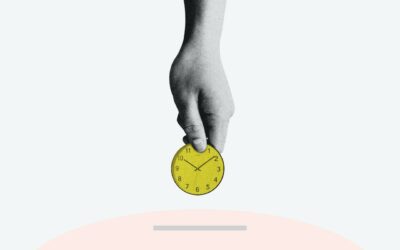“So remember this principle when something threatens to cause you pain: the thing itself was no misfortune at all; to endure it and prevail is great good fortune…” Marcus Aurelius
The good news: several vaccines work and will soon start to be distributed. To have developed effective vaccines that appear to be safe and have them ready for delivery within 9 months is a staggering and positive move forward.
The bad news: the days are short, the weather cold, covid cases are going through the roof, nationally there have have been over 270,000 deaths from covid, hospitals are at capacity, shutdowns are surging again, many of us are isolated and lonely and in a computer hell, and we are just at the start of winter.
This sucks. For all of us. And when things suck, the first thing to do is to accept that it sucks.
But what does it mean to “accept?” The word accept comes from a Latin root that denotes “to receive; as if to receive a gift.” There have been many “gifts” delivered to us inside this covid package – stuck at home, computer hell, nothing to look forward to, loneliness, chronic low grade malaise and misery, one day merging into the next, each day filled with waves of different emotions, the list goes on.
Like a broken record I keep humming the Pain X Resistance = Suffering formula to myself and others. In my opinion it is a master habit of the Resilience Bank Account.
When we experience physical or mental pain, the automatic, natural, and protective impulse is to resist it in one of two ways:
1. Avoid the pain – either by denying it (“I’m fine”) or by numbing (netflix/iphones/food/alcohol/drugs).
2. Fixate on the pain – by complaining, rumination, worry, or pushing so hard to find a solution that it starts to take control of your minutes, hours, days, and your life. As the saying goes, what you focus on grows.
These strategies work great to protect you from hurting yourself again, (like not putting your hand on a hot stove again), but they will fail you miserably over the psychological long haul, which is most of your existence.
Resisting pain puts you on the runway of suffering and a potential downward spiral into a litany of mental maladies like anxiety, depression, emotional numbness, or addiction. Resisting our pain traps us on the island of what the psychologist Steven Hayes calls psychological rigidity.
So you might ask, what the f*** do I do about the pain then? The answer is to accept it, fully. Acceptance is the miracle drug for the struggles of being a human being. Ah, but what in the hell is acceptance, and how does one do acceptance?
Real acceptance, the in your bones I am ok with experiencing whatever is happening, is not some curl up in bed, I’m a victim, poor me, acquiescence to reality. Real acceptance is an empowered stance of knowing that you can totally accept your emotional and physical pain, that it is impermanent, that it will pass, and that you can learn from it.
According to Hayes, being fully present and accepting our emotional pain uncovers our deepest yearnings, the things we care most about, which most of the time involves our yearning to love and to make a difference.
Lifting your mental plane off the runway of mental resistance and facing the clouds and turbulence of daily life with kindness, patience, and curiosity toward yourself frees you of the chains of avoidance and resistance, and into the wide open landscape of psychological flexibility, where discoveries, possibilities, and solutions can be found, no matter the struggle.
As Steven Hayes notes in his brilliant book A Liberated Mind, How to Pivot Toward What Matters, psychological flexibility empowers us to accept our pain and live life as we desire, with our pain. Hayes believes that psychological flexibility is a means of achieving human liberation; it is the counterweight that people need to rise to the increasing challenges of the modern world.
The habit of Acceptance can be practiced on both a micro level and a macro level. On the micro level you can train yourself to relax and not numb, fixate, or over react to any immediate event that causes pain. You can learn to stay present and accepting of the pain until it passes. By practicing on a small level with all of the small irritations or negative emotions you experience on any given day you train yourself for the macro project.
I don’t know about you, but these days I find myself getting excessively triggered more often by the smallest damn things. These are perfect opportunities to train yourself to pause, let go of any movie reel running in your mind about whatever did the triggering, and to just let the emotional flame die out.
On a macro level you can accept the fact that there is a baseline level of at least low grade misery nearly everyday right now and, in that more relaxed and spacious state, you can channel your mental and physical resources into constructive things that you value, despite the constant low grade misery, like small or large dopamine projects that I have written about previously, or important self-care activities like exercise, good meals, meditation, and making the effort to connect with people close to you, even if it is by phone or zoom.
Franz Kafka, frustrated with his living quarters and day job, wrote in a letter to Felice Bauer in 1912, “time is short, my strength is limited, the office is a horror, the apartment is noisy, and if a pleasant, straightforward life is not possible then one must try to wriggle through by subtle maneuvers.”
Accept, relax, and wriggle through this mess with whatever subtle or big maneuvers that matter to you, no matter what.
And keep in mind what Kathleen Casey Theisen said: “acceptance is not submission; it is acknowledgment of the facts of a situation. Then deciding what you’re going to do about it.”




0 Comments